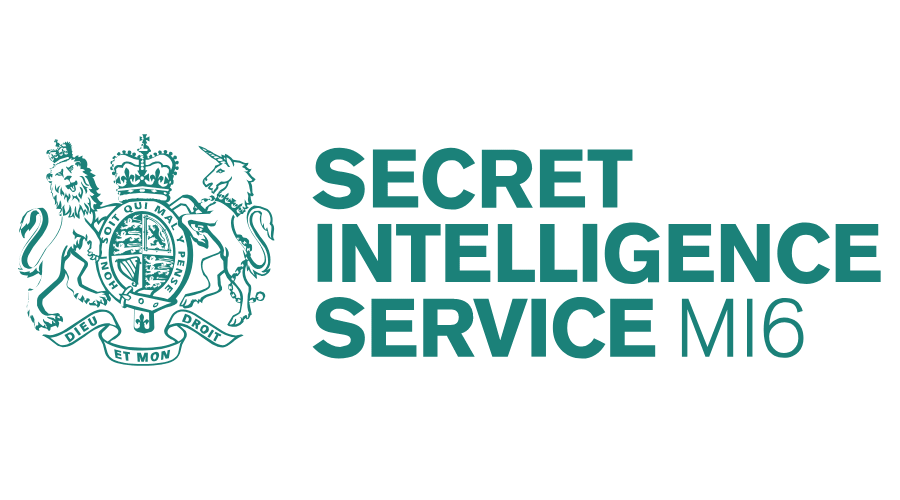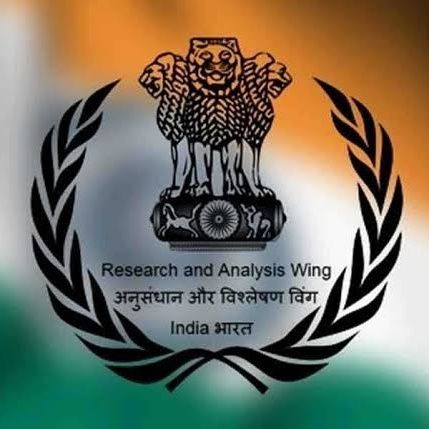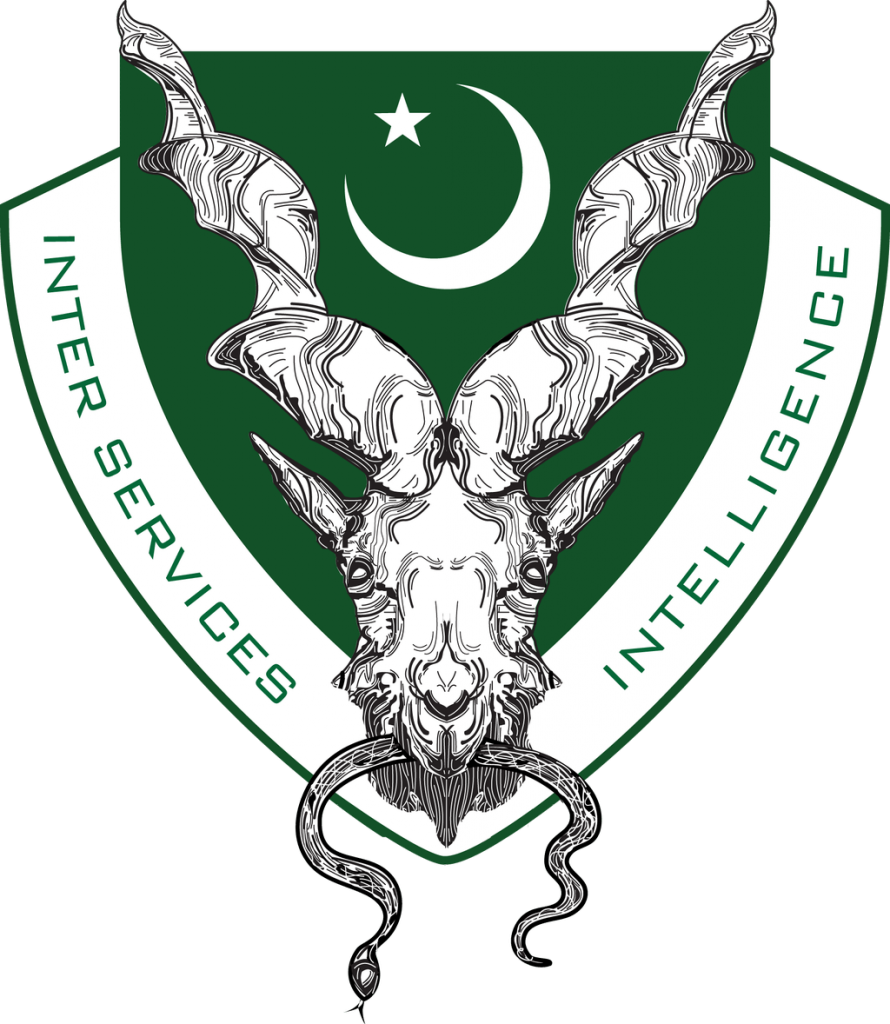Intelligence agencies are crucial to preserving national security, obtaining important intelligence, and reshaping geopolitical environments in today’s linked and information-driven world. These clandestine organisations frequently operate in secrecy, are cloaked in mystery, and have a substantial influence on world affairs. Let’s investigate the top 10 most potent intelligence services in the world, learning about their background, capabilities, and impact as we set out on a quest to solve the mystery.
TOP 10 MOST POWERFUL INTELLIGENCE AGENCY IN THE WORLD
-
Central Intelligence Agency (CIA), USA:
-
Mossad, Israel:
-
Federal Security Service (FSB), Russia:
-
Secret Intelligence Service (MI6), UK:
-
Foreign Intelligence Service (SVR), Russia:
-
Research and Analysis Wing (RAW), India:
-
BND (Bundesnachrichtendienst), Germany:
-
Direction générale de la sécurité extérieure (DGSE), France:
-
Inter-Services Intelligence (ISI), Pakistan:
-
Ministry of State Security (MSS), China:
1. Central Intelligence Agency (CIA), USA:

An enigmatic institution that has long stoked intrigue, debate, and interest is tucked away in the centre of American intelligence activities. The Central Intelligence Agency (CIA), which is frequently shrouded in secret, is a complex organisation that goes beyond how it is typically portrayed in popular culture. In this essay, we set out on a quest to decode the CIA, exploring its background, responsibilities, successes, and difficulties in order to reveal the intricate and multifaceted character of this venerable intelligence organisation.
The Effects of Espionage
The CIA emerged from World War II’s shadows in 1947 when the National Security Act created it, charged with acquiring and analysing intelligence to assist national security goals. Over time, the agency’s responsibilities grew to include clandestine operations, counterintelligence, and gathering vital data from around the world.
Responsibilities and duties:
- Gathering Intelligence: The CIA’s primary function is to gather intelligence. To do this, it makes use of a wide network of human resources, cutting-edge technology, and collaborations with other foreign intelligence services.
- Covert Operations: The CIA has organised a variety of covert operations, from aiding resistance movements to influencing other governments. The agency’s role in the 1953 ouster of Iran’s Prime Minister Mohammad Mossadegh and the equipping of Afghan mujahideen during the Soviet-Afghan War are two notable examples.
- Counterterrorism: The CIA increased its focus on counterterrorism in the years following September 11, 2001, and has since been instrumental in locating valuable targets and disabling terrorist networks. The operation that ended with the death of Osama bin Laden is evidence of the agency’s tenacity.
Espionage and cyberwarfare:
As technology advanced, so did CIA capabilities. The CIA conducts cyber operations to obtain information, thwart adversaries, and safeguard American interests online.
Problems and Disputations:
The CIA’s journey hasn’t been without difficulties or controversy, though. Debats over the moral limits of intelligence operations have been sparked by instances of clandestine operations having unintended repercussions, claims of human rights violations, and concerns about the agency’s transparency.
2.Mossad, Israel:

Few names are as revered, intriguing, and enticing in the world of intelligence services as Mossad, Israel’s Institute for Intelligence and Special Operations. Mossad, which is sometimes cloaked in secrecy, has established itself as a renowned power in the espionage industry. This essay takes you on an engrossing tour of the Mossad’s operations, effect, and history while showcasing the organization’s extraordinary skill at defending Israel’s interests.
Evolution and Origins:
Mossad was established in 1949, not long after the creation of the state of Israel, in order to safeguard the young country from several dangers. Because of the agency’s twin emphasis on intelligence gathering and special operations, its name, which is derived from the Hebrew word for “institute,” is appropriate. In an ever-evolving geopolitical environment, Mossad has been committed to preserving Israel’s security while relentlessly pursuing information.
Important Operations and Functions:
- Intelligence Gathering: Intelligence gathering is the main responsibility of Mossad in ensuring the security of Israel. The CIA gathers crucial data on possible threats, opponents, and worldwide trends through a network of trained operatives, informants, and cutting-edge surveillance tactics.
- Counterterrorism and Special Operations: Mossad has carried out risky and ambitious operations to eliminate terrorists and avert immediate threats. Counterterrorism and Special Operations. Adolf Eichmann, a key figure in the Holocaust, was apprehended by the agency, as were the hostages held in Uganda during Operation Entebbe and Adolf Eichmann.
- Espionage and counterintelligence: The Mossad is renowned for its outstanding counterintelligence work, preventing espionage against Israel while carrying out its own clandestine operations abroad.
- Cyber Warfare and Technological Expertise:Mossad has embraced cyberwarfare and cutting-edge technology as a means of advancing its operations by embracing the digital age. Israel’s digital assets are crucially protected by the agency’s cyber capabilities.
Legacy and Effect:
The legacy of Mossad is characterised by a number of outstanding accomplishments that have influenced Israel’s history and dynamics of international security. War criminals responsible for the Holocaust were apprehended and put on trial as a result of the agency’s tenacious pursuit of justice. Additionally, Mossad showed its steadfast dedication to averting existential threats by carrying out preventive strikes against nuclear sites in Syria and Iraq.
Problems and Ethical Conundrums:
Although Mossad’s successes are acknowledged, some of its operations have been clouded by controversy. Debates regarding the moral limits of intelligence work have been triggered by allegations of extrajudicial conduct, including targeted assassinations.
Intrigue and secrecy:
Mossad’s reputation for secrecy, which it has actively promoted, has only increased interest worldwide. The complexity of its operations, as well as how it is portrayed in the media and popular culture, add to the aura of mystery that surrounds this potent intelligence organisation.
3.Federal Security Service (FSB), Russia:

One organisation sits as a silent sentinel in the vastness of Russia’s intelligence infrastructure, guarding the country’s interests with unmatched attention and accuracy. The Federal Security Service (FSB), the illustrious KGB’s replacement, works covertly while juggling security, intelligence, and geopolitics. This article explores the FSB’s many facets, including its origins in history, its roles today, its clandestine activities, and the nuanced influence it has on contemporary Russia.
A chronological progression:
The premier security and intelligence organisation of the Soviet Union, the KGB, is where the Federal Security Service gets its name. The FSB was established in 1995 after the Soviet Union’s collapse, taking over the KGB’s duties and legacy but preserving a comparable structure.
Mandates & Missions:
Internal Security and Counterintelligence: The main goal of the FSB is to maintain internal security within Russian borders by thwarting espionage, terrorism, and organised crime. Its ferocious counterintelligence operations are intended to find and eliminate foreign operatives while protecting vital data.
- Counterterrorism and Special Operations: The FSB is essential in preventing terrorist operations within Russia in this period of widespread terrorism. The agency’s quick responses to threats and involvement in high-risk operations highlight its commitment to defending the public and preserving order.
- Information operations and cyberwarfare: The FSB has a strong capacity for cyberwarfare, engaging in both offensive and defensive cyberoperations. It works to ensure information supremacy, acquire intelligence, and safeguard vital infrastructure.
- Geopolitical Influence and Foreign Intelligence: Although primarily concerned with domestic issues, the FSB also conducts foreign intelligence operations, obtaining vital data that helps guide Russia’s geopolitical policies and judgements.
Covert Activities and Disputations:
The FSB has a long history of clandestine activities, some of which have attracted international attention. The agency’s operations have sparked controversies and discussions over its genuine aims, from allegations of its involvement in cyberattacks to suspicions of espionage.
Challenges and Contemporary Facts:
The FSB faces particular difficulties as the globe becomes more linked. The organisation must keep its core obligations while navigating the intricacies of cyber threats, hybrid warfare, and information manipulation.
The Mysteries of Secrecy.
The FSB thrives on secrecy, generating an air of mystery that feeds intrigue and speculative writing, much like its predecessor, the KGB. Its actions continue to be shrouded in mystery, leading observers to speculate about the true scope of its influence and reach.
4. Secret Intelligence Service (MI6), UK:

One organisation stands out among the venerable organisations supporting British national security because it exudes mystery, sophistication, and a history of covert operations. The Secret Intelligence Service (SIS), also known as MI6, has developed a reputation for quality and mystery that resonates throughout the history of intelligence. In this essay, we dig into the mysterious world of MI6, examining its history, operational reach, crucial contributions, and the unique role it performs in defending the interests of the United Kingdom.
A History of Spying:
The Secret Service Bureau, founded by Captain Sir George Mansfield Smith-Cumming, gave rise to MI6, which was established in 1909. Prior to World War I, MI6 was initially established to fight German espionage attempts. Over time, however, its duties have grown to include intelligence gathering, covert operations, and global influence.
Operations and Functions:
Gathering Foreign Intelligence: MI6’s main task is to compile foreign intelligence that is essential to British national security. The agency gathers important information about adversaries, possible threats, and geopolitical developments through a network of professional operatives, agents, and cutting-edge technology.
- Covert Operations and Special Projects: MI6 is well-known for its covert operations, which include espionage, sabotage, and government influence. The strategic objectives of Britain are aided by these activities, which frequently blur the lines between intelligence and diplomacy.
- Counterintelligence and counterterrorism: In the modern period, MI6 has been instrumental in counterterrorism efforts, tracking and eliminating extremist threats that put British nationals in danger. The organisation also uses counterintelligence techniques to safeguard private data and resist espionage operations.
- Cyber and technological prowess: MI6 has made investments in cutting-edge technology to improve its intelligence-gathering skills and protect against cyber attacks because it recognises the importance of the digital landscape.
Contributions and Historical Success:
The outstanding accomplishments MI6 has made in the past have permanently changed the course of world affairs. The agency’s resourcefulness is demonstrated by its role in World War II, particularly the infamous “Double Cross” operation that tricked German intelligence. The crucial contributions MI6 makes to world security are highlighted by its intelligence sharing with allies and involvement in the Cuban Missile Crisis.
Problems and Disputations:
Although MI6 is revered for its illustrious accomplishments, its actions have occasionally caused controversy. Examples include claims of human rights violations and ethical issues with clandestine operations.
The Art of Confidentiality:
MI6’s mystique, which has been fostered by both the organisation and popular culture, depends on its air of secrecy. The mystery surrounding the men and women who act as Britain’s silent sentinels has been heightened by depictions in literature and motion pictures.
5.Foreign Intelligence Service (SVR), Russia:

The Foreign Intelligence Service (SVR), which is tucked away within the intricate labyrinth of Russian intelligence agencies, emerges as a crucial actor in defending Russia’s interests on the international scene. The SVR performs a crucial task of acquiring foreign intelligence, carrying out covert activities, and influencing global affairs while operating in secrecy. In this essay, we set out on an investigation of the mysterious SVR, tracing its history, revealing its operational range, looking at major accomplishments, and probing the subtleties that characterise its function in the contemporary world.
Evolution and the Creation:
The First Chief Directorate of the KGB, the main foreign intelligence organisation of the Soviet Union, served as the SVR’s ancestor. The SVR, which was established in 1991 following the collapse of the Soviet Union, took over the responsibilities of its forerunner by concentrating on acquiring foreign intelligence and defending Russia’s national security interests.
Operations and Missions:
Foreign Intelligence Gathering is the SVR’s primary task, and it is accomplished through a sophisticated network of operatives, informants, and cutting-edge technology. It keeps track of world events, examines geopolitical patterns, and gives Russian officials critical information.
- Covert Operations and Influence: The SVR aims to influence foreign governments, organisations, and events to advance Russia’s geopolitical goals by combining espionage, psychological operations, and covert actions.
- Counterintelligence and Counterterrorism: The SVR is tasked with thwarting espionage attempts, putting an end to terrorist operations, and protecting Russia from external threats in a time of transnational challenges.
- Cyber espionage and information warfare: The SVR uses cyber operations to gather intelligence, thwart opponents, and assert Russia’s dominance in the digital sphere, realising the importance of the digital frontier.
Significant accomplishments and contributions
The contributions of the SVR span many years and important junctures in Russian history. Its information gathering helped shape Russia’s position during crucial international discussions, and both combat zones and diplomatic circles have felt the effects of its influence.
Problems and Disputations:
Operating in a complicated geopolitical environment presents difficulties and contentious issues. The SVR’s participation in world events has come under scrutiny due to charges of cyberattacks, claims of interference in foreign elections, and moral questions concerning covert operations.
Secretly Veiled:
The SVR is a mysterious and elusive entity since its operating philosophy depends on secrecy. The agency’s tactics, agents, and operations are all kept secret, which adds to its attraction.
6. Research and Analysis Wing (RAW), India:

The Research and Analysis Wing (RAW) of India stands out as a beacon of strategic insight and clandestine operations in the variegated world of intelligence organisations. RAW, which operates with a discrete but powerful presence, is essential in determining India’s national security, foreign policy, and geopolitical strategies. This article delves into the mysterious world of RAW, tracing its history, examining its many facets, emphasising significant accomplishments, and revealing the agency’s function in defending India’s interests.
Evolution and the Creation:
RAW was established in 1968 in reaction to local and international challenges, and it quickly became a crucial part of India’s intelligence network. RAW’s founding heralded a new age of strategic thinking and intelligence capabilities with a concentration on obtaining foreign intelligence and clandestine operations.
Responsibilities and missions:
Foreign Intelligence Gathering: The main responsibility of RAW is to gather foreign intelligence using a wide range of human resources, cutting-edge technology, and diplomatic channels. The organisation keeps tabs on world events, spots potential risks, and gives India’s decision-makers crucial information.
- Special Projects and Covert Operations: RAW is excellent at carrying out covert operations that advance India’s strategic objectives. Its actions go beyond conventional intelligence gathering, from aiding dissident movements to battling terrorism.
- National Security and Counterterrorism: In a time of global challenges, RAW is essential to counterterrorism activities. Security agencies are alerted to potential dangers by its intelligence, which also aids in preventing terrorist activity on Indian soil.
- Geopolitical Analysis and Support for Foreign Policy: RAW’s analytical talents help India’s foreign policy choices. The agency assists decision-makers by offering insights into regional dynamics and global trends.
Principal Successes and Contributions:
RAW left behind a legacy of noteworthy accomplishments that significantly impacted India’s security and diplomacy. Its crucial contributions are highlighted by its part in preventing terrorist acts, gathering crucial intelligence during conflicts, and assisting friendly nations.
Issues and Moral Considerations:
There are difficulties when operating in a complicated geopolitical context. Allegations of clandestine actions and worries about the moral limits of intelligence operations have put RAW at the centre of controversy.
Cloak of Secrecy:
Similar to its international rivals, RAW focuses on secrecy, creating an air of mystery and intrigue around its operations. Its aura is influenced by its covert operations and the aptitude of its operators.
7.BND (Bundesnachrichtendienst), Germany:

Germany’s intelligence system is supported by an organisation that acts with skill, accuracy, and a history of preserving national security. It is tucked away in the centre of Europe. Germany’s Federal Intelligence Service, the Bundesnachrichtendienst (BND), is essential to defending national interests, obtaining vital intelligence, and navigating the complexity of international geopolitics. This article goes into the world of the BND, chronicling its origins, revealing its operational duties, highlighting notable accomplishments, and illuminating its enormous impact on the intelligence community.
Evolution and Origins:
The BND was founded in 1956 in response to the demand for trustworthy intelligence gathering and analysis following World War II and the Cold War. The obligation was passed down to the BND, which was shaped by Germany’s turbulent history.
Important Operations and Functions:
Gathering Foreign Intelligence: The BND’s primary duty is to gather foreign intelligence by utilising a combination of human intelligence, technical resources, and diplomatic channels. It offers priceless insights on planetary processes, looming dangers, and geopolitical tendencies.
- Counterintelligence and Counterterrorism: In a constantly changing security environment, the BND conducts counterintelligence activities, identifying and foiling espionage attempts as well as preventing terrorist attacks that would jeopardise Germany’s security.
- Political Analysis and Diplomatic Support: The BND supports Germany’s diplomatic endeavours by providing insightful political analyses that help the country make informed decisions about its foreign policy.
- Cyber Operations and Technological Expertise: The BND has developed to engage in cyber operations, enhancing its capacity for intelligence collecting and thwarting digital threats. This is due to its recognition of the importance of the digital world.
Significant accomplishments and contributions:
The BND has a significant impact outside of German territory and has made notable contributions to international security. The BND’s contributions have been felt in significant historical events, from its function during the Cold War to its involvement in global terrorist initiatives.
Obstacles and the Future:
The BND faces difficulties as it operates in a changing and interconnected environment. The organisation must negotiate changing cyberthreats, hybrid warfare, and the difficulties of contemporary intelligence operations.
A Mask of Recklessness:
The BND operates in secrecy, keeping its operations, operators, and techniques concealed from the public, much like its foreign counterparts. Its atmosphere of mystery and popular culture’s representation of intelligence operations add to its enigmatic reputation.
8. Direction générale de la sécurité extérieure (DGSE), France:

France’s intelligence landscape is adorned with an agency of mystery, elegance, and a history steeped in secret operations, nestled in the centre of Europe. The France’s General Directorate for External Security, or Direction générale de la sécurité extérieure (DGSE), acts as a watchful sentinel, coordinating intelligence collecting, counterterrorism operations, and geopolitical manoeuvring. This article explores the DGSE, tracing its historical origins, revealing its multifarious operations, emphasising significant accomplishments, and illuminating its function as France’s spies’ watchdog.
Evolution and Origins:
The DGSE was established in 1982 in response to France’s need for a strong and unified foreign intelligence agency. The DGSE was given the responsibility of defending France’s national security and interests by its forerunner, the SDECE.
The operational scope and missions:
- Foreign Intelligence Gathering: The primary responsibility of the DGSE is to gather foreign intelligence through a network of human operatives, cutting-edge technology, and diplomatic sources. It offers crucial insights on global developments, possible threats, and geopolitical trends to France’s authorities.
- Espionage and Covert Operations: The DGSE is recognised for its skill in carrying out espionage, sabotage, and covert operations, both in support of French interests and to thwart prospective rivals. Its actions frequently cross the boundary between diplomacy and intelligence.
- Counterterrorism and Special Activities: In a time when there is a great deal of international terrorism, the DGSE is essential in thwarting terrorist threats, monitoring extremist activity, and supporting global efforts to stop assaults.
- Geopolitical Analysis and Diplomatic Support: The DGSE’s analytical capabilities, which go beyond traditional intelligence collecting, help France’s foreign policy decisions by providing sophisticated insights into international relations and the dynamics of world power.
Significant accomplishments and contributions:
The legacy of the DGSE is dotted with noteworthy accomplishments that have permanently altered French security and international relations. Its contribution to foiling terrorist plots, carrying out clandestine operations, and advancing France’s diplomatic initiatives echo in critical junctures in history.
Issues and Moral Considerations:
There are difficulties involved with conducting business in a complicated geopolitical context. The DGSE has handled controversies such as claims of violations of human rights and worries about the moral limits of intelligence operations.
The Shroud of Mysteries:
The DGSE operates in secrecy, much like its international counterparts, and cultivates an air of mystery that heightens its allure. The agency has an enigmatic reputation due in part to its covert operations and the commitment of its operatives.
9.Inter-Services Intelligence (ISI), Pakistan:

Few command as much intrigue, controversy, and importance as Pakistan’s Inter-Services Intelligence (ISI) in the dynamic world of intelligence agencies. The ISI, which operates in secrecy, is recognised for playing a crucial role in defending Pakistan’s interests, carrying out clandestine operations, and determining the country’s geopolitical strategies. This article looks into the mysterious world of the ISI, chronicling its history, revealing its diverse roles, analysing its accomplishments, and illuminating its complicated effects on Pakistan and other countries.
Background and Evolution:
The ISI was established in 1948, not long after Pakistan’s founding, as an organisation to support the country’s military and defence departments with intelligence. Its responsibilities have grown to include strategic analysis, terrorist initiatives, and foreign intelligence.
Dimensions of operations and missions:
Strategic Intelligence and Analysis: Gathering and analysing strategic intelligence is at the heart of the ISI’s mandate. It gives Pakistan’s policymakers information on geopolitical trends, potential dangers, and global possibilities.
- Espionage and Covert Operations: Both domestically and globally, covert operations and espionage have a significant impact on the legacy of the ISI. Its pursuit of Pakistan’s strategic objectives frequently includes operations like combating terrorism and influencing foreign governments.
- Counterterrorism and Counterinsurgency: The ISI is essential in identifying and dismantling terrorist networks in a region that struggles with extremism and terrorism. It works to maintain regional stability and national security in Pakistan.
- Geopolitical Influence and Proxy Warfare: The ISI is well-known for engaging in proxy warfare, using its connections to different parties to further Pakistan’s objectives in its immediate neighbourhood.
Important Successes and Contributions:
The impact of the ISI on Pakistan’s history and international politics has endured for many years. It has received praise and recognition for its assistance with Afghan resistance to the Soviet invasion, for its contributions to regional stability, and for its counterterrorism initiatives.
Problems and Disputations:
Both domestically and internationally, the ISI’s role has been characterised by difficulties and controversy. Debatable topics include charges of involvement in clandestine operations, violations of human rights, and meddling in the internal affairs of neighbouring nations.
Developing a Secrecy Aura:
The ISI thrives on secrecy, preserving an air of mystery that adds to its mystique much like its international rivals. The intrigue is increased by its clandestine operations, media representation, and the commitment of its operatives.
10. Ministry of State Security (MSS), China:

China’s Ministry of State Security (MSS) is a dominant force in the world of intelligence agencies, functioning with accuracy, depth, and a veil of secrecy. The MSS is responsible for defending China’s interests, gathering intelligence, and organising covert operations. It is crucial in determining China’s geopolitical strategies. This article explores the mysterious world of the MSS, tracing its historical roots, delving into its many facets, highlighting major accomplishments, and illuminating its significant impact on the intelligence community.
Evolution and Origins:
The Ministry of State Security was established in 1983 in response to China’s rising demand for a centralised intelligence organisation. It brought together numerous intelligence agencies under one roof and placed a strong emphasis on acquiring international and domestic intelligence.
Operational scope and Functions:
Foreign Intelligence Gathering: Gathering foreign intelligence is at the core of the MSS’s mandate. The agency obtains vital information on international developments, prospective dangers, and geopolitical trends using a network of operatives, informants, and cutting-edge technology.
- Counterintelligence and Counterespionage: The MSS is tasked with thwarting espionage attempts and guarding China from outside intelligence operations. Its tenacious counterintelligence operations are designed to find, stop, and neutralise espionage on Chinese soil.
- Domestic Surveillance and Political Control: Domestic Dissidents, Potential Regime Threats, and Political Dissension are all under the MSS’s observation and political control, aside from international issues. It is crucial for preserving household tranquilly and upholding state authority.
- Cyber Operations and Technological Dominance: The MSS has embraced cyber operations, utilising its skills to gather intelligence, disrupt opponents, and exert China’s dominance in the digital sphere, realising the importance of technology.
Important Successes and Contributions:
The MSS’s accomplishments have had an impact on international affairs and the security environment of the country outside China’s borders. Its crucial contributions are highlighted by its involvement in counterespionage, countering possible threats, and giving crucial intelligence to Chinese officials.
Problems and Ethical Conundrums:
The challenges of living in a connected society are numerous. The MSS has dealt with accusations of cyber espionage, worries about violations of human rights, and discussions about the moral limits of intelligence activity.
Secretive in nature:
The MSS operates in secrecy, preserving an air of mystery and intrigue around its activities, much like its international counterparts. The CIA has an intriguing reputation that is a result of its covert operations, media representation, and the commitment of its operatives.
Conclusion:
Intelligence agencies serve as sentinels, defending their countries’ interests and promoting stability in the complex web of international interactions and security dynamics. The top 10 intelligence organisations listed here combine historical importance, technological prowess, and clandestine talents. These organisations will continue to influence world events as the world changes, forever changing the geopolitical landscape.
